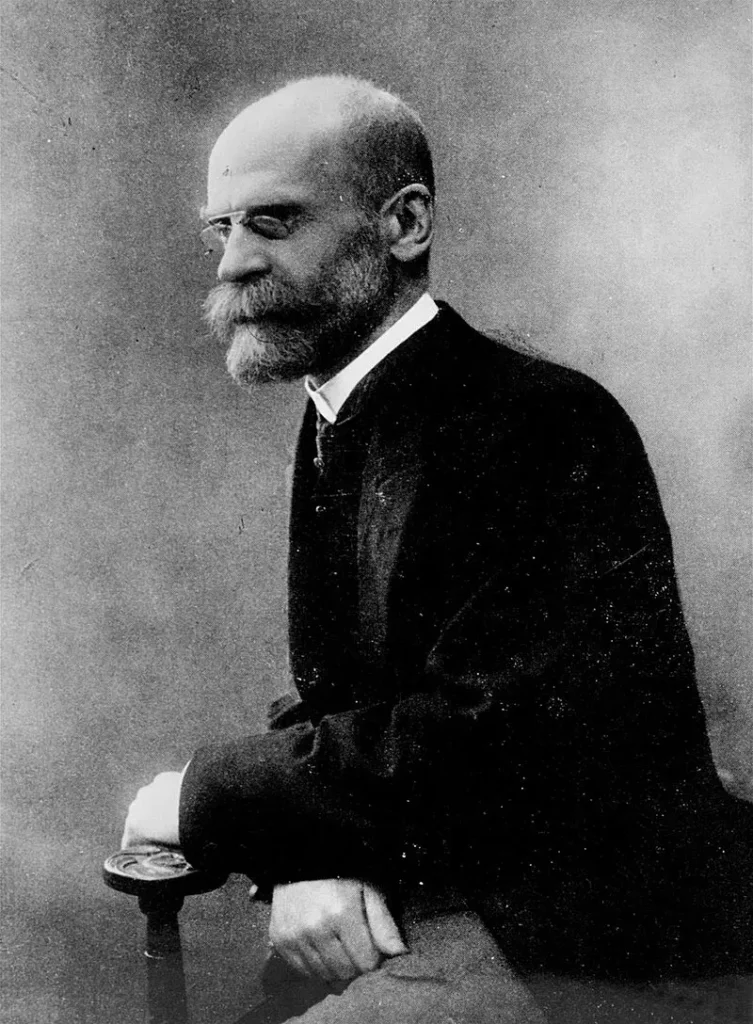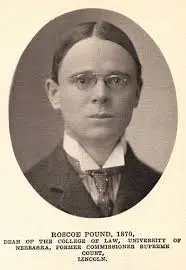Introduction
The Sociological School of Jurisprudence offers a compelling lens through which to view law, emphasizing its intertwined relationship with society. Emerging in the late 19th and early 20th centuries, this perspective diverges from traditional approaches by focusing on the law’s role as a product of social dynamics and its potential as a tool for social engineering. Here’s a deep dive into this fascinating field, exploring its key features, notable contributors, and its influence on modern legal thought.
Foundations and Key Figures
Émile Durkheim

Often hailed as one of the intellectual founders, Durkheim’s exploration of social facts laid the groundwork for understanding law as a societal construct. He highlighted how social forces shape legal norms and institutions, asserting that law is not just a system of rules but a reflection of societal values and order.
Max Weber

Weber’s concept of “legal rationalization” introduced the idea that modern legal systems are deeply intertwined with bureaucracy and rational legal authority. His work underscored how law evolves within the broader fabric of social structures, emphasizing the interplay between law and social processes.
Roscoe Pound

Pound significantly advanced the sociological approach in the United States, advocating for the study of law as a social science. He argued that legal rules and institutions should be evaluated based on their social consequences, promoting the idea that law should enhance social welfare and justice.
Karl Marx

Though primarily a political economist, Marx’s views on law’s role in maintaining class dominance influenced the sociological perspective. He posited that law serves the interests of the ruling class, shaping societal structures to sustain their power and control.
Salient Features of the Sociological School
Social Contextualization
Unlike traditional schools that prioritize abstract principles, the sociological school examines law within its social context. It considers how cultural, economic, and political factors shape legal norms and institutions, arguing that law is a product of societal forces.
Empirical Analysis
Sociological jurists rely on empirical research, employing methods like data collection and analysis to study legal phenomena. This approach helps identify patterns and trends in how the law operates in real-world contexts, focusing on the behaviour of legal actors and the practical effects of legal rules.
Value Orientation
This school recognizes that law is deeply influenced by societal values. It examines how legal norms reflect societal values and how shifts in these values can lead to changes in the law. This perspective underscores the dynamic nature of law, adapting to evolving social goals like justice and equality.
Interplay with Legal Realism
The sociological school shares common ground with legal realism, both challenging the notion of law as a set of objective rules. It emphasizes the role of judicial discretion and the subjective factors influencing legal decisions, blending realism’s focus on practical decision-making with a broader social analysis.
Instrumentalism
Viewing law as a tool for achieving social objectives, sociological jurists assess legal rules based on their effectiveness in promoting social welfare, justice, and order. They argue that legal norms should be designed to address social issues and enhance societal well-being.
Also Read: Realist School Of Jurisprudence
Influential Contributions and Criticisms
The sociological school has enriched our understanding of law’s social dimensions, but it is not without its critics:
Legal Formalism
Critics like John Chipman Gray and Oliver Wendell Holmes Jr. argue that sociological approaches overemphasize social context, risking the erosion of legal certainty and predictability. They advocate for a focus on objective legal principles over subjective social values.
Natural Law Theorists
Scholars such as Lon L. Fuller and Ronald Dworkin critique the sociological school for its perceived relativism, asserting that law should be grounded in universal moral principles rather than social facts. They argue that this approach neglects the normative aspects of law.
Critical Legal Studies (CLS)
CLS scholars challenge the sociological school for potentially reinforcing existing power structures, arguing that it often fails to address deep-seated injustices within legal systems. They call for a more radical critique of the law’s role in perpetuating inequality.
Law and Economics
Advocates like Richard Posner and Gary Becker critique the sociological school for neglecting economic considerations. Promoting instead a model where law is analyzed based on its economic efficiency and impact on social welfare.
Legal Positivists
Figures like H.L.A. Hart and Joseph Raz argue that the sociological approach blurs the line between law and morality. They maintain that the law’s validity should rest on social acceptance rather than moral criteria, cautioning against conflating descriptive and normative aspects of the law.
Sociological Influence on Indian Constitutional Law
In India, the sociological school’s influence is evident in several constitutional provisions:
Article 14 – Right to Equality
The Supreme Court’s interpretation has evolved to include affirmative action, addressing historical injustices faced by marginalized communities.
For instance, in State of Kerala v. N.M. Thomas (1976), the Court upheld reservations for Scheduled Castes and Tribes, drawing on sociological evidence of their social and economic disadvantages.
Article 15 – Prohibition of Discrimination
The interpretation of Article 15 has expanded to encompass intersectional discrimination, promoting substantive equality. In Indra Sawhney v. Union of India (1992), the Court upheld reservations for Other Backward Classes, considering sociological data on their socio-economic status.
Article 21 – Right to Life and Personal Liberty
The right to life has been interpreted broadly to include socio-economic rights. In Olga Tellis v. Bombay Municipal Corporation (1985), the Court recognized the right to livelihood, stressing the need for alternative housing for pavement dwellers.
Article 46 – Promotion of Educational and Economic Interests of Weaker Sections
This article has guided policies for the upliftment of Scheduled Castes, Tribes, and other marginalized groups. In M. Nagaraj v. Union of India (2006), the Court upheld reservations in promotions, supported by sociological evidence of continued marginalization.
Conclusion
The Sociological School of Jurisprudence offers a rich, dynamic perspective on law. Seeing it as deeply embedded in societal contexts and driven by social values. While it faces critiques, its emphasis on empirical research, social values, and practical effects of legal rules continues to shape modern legal discourse. By bridging law with social science, it enhances our understanding of law’s role in fostering social justice and order, making it an indispensable element of contemporary legal thought.
FAQ for Sociological School of Jurisprudence
1. What is the Sociological School of Jurisprudence?
The Sociological School of Jurisprudence is a perspective within legal theory that emphasizes the importance of societal context, social values, and the impact of social forces on the development and application of law.
2. Who are the key figures associated with the Sociological School of Jurisprudence?
Key figures include Émile Durkheim, Max Weber, Roscoe Pound, and Karl Marx. Each contributed to the understanding of law as a social phenomenon and its role in society.
3. How does the Sociological School differ from other schools of jurisprudence?
Unlike traditional approaches that focus on abstract principles or formal rules, the sociological school examines law within its social context, considering factors like culture, economics, and politics.
Also Read: Schools Of Jurisprudence | 5 Types
Reference: lawnotes.co